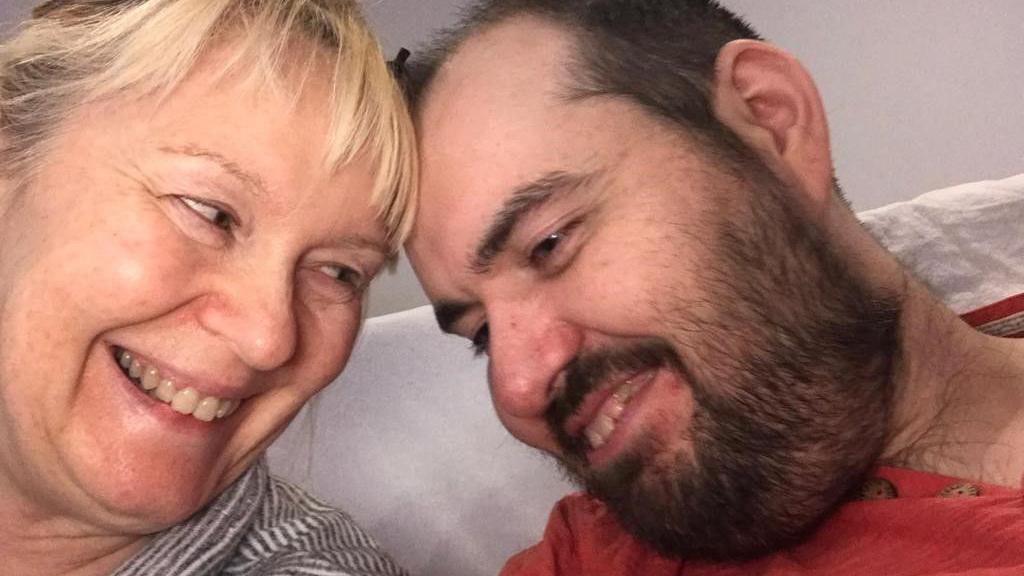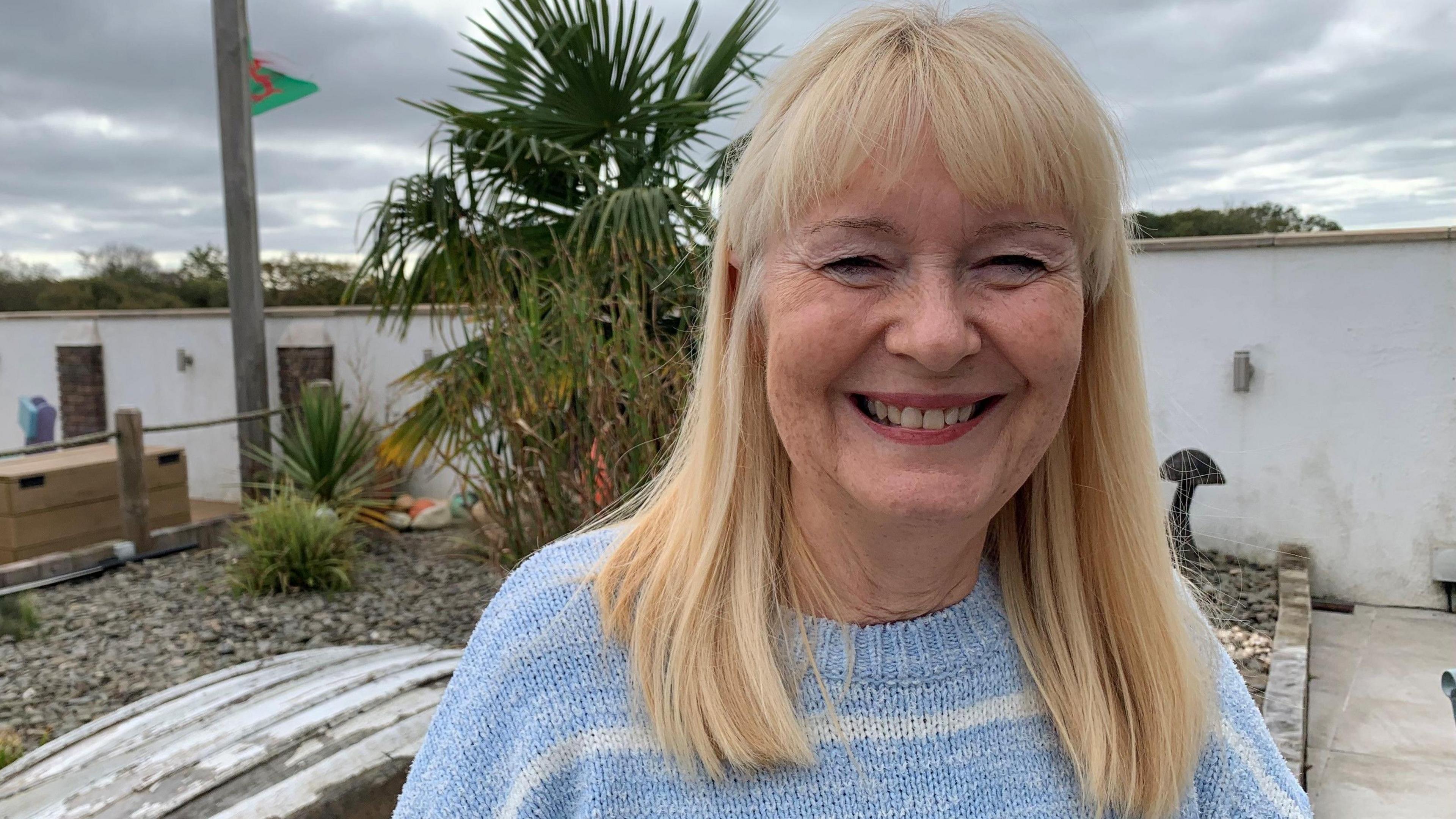Epilepsy patients 'at risk' following unit closure

Marie James and her son Trystan James
- Published
Vulnerable patients with epilepsy and learning disabilities have been left at an "increased risk" of premature death because of the sudden closure of a specialist service in west Wales four years ago, a mother has said.
The lack of provision from Hywel Dda University Health Board caused significant distress for patients and their carers and amounted to maladministration and service failure, the Public Services Ombudsman for Wales has said.
The ombudsman published a report following complaints from seven families that used the service.
Hywel Dda health board apologised, acknowledged it had caused trust to break down, accepted the report's recommendations and was working on ways to improve.
Marie James, from Carmarthenshire, complained to the Public Services Ombudsman for Wales on behalf of the seven families who had adult children using the service.
More than 160 families used the service at the time of closure and many of those had multiple complex needs and were at a higher risk of sudden unexpected death in epilepsy.
Ms James' son Trystan James, 38, used the service for 18 years before it closed.
He has the genetic condition Tuberous Sclerosis Complex, which means he has tumours on the brain and has a host of other health conditions which means he needs two carers with him all the time.
He has regular daily seizures as well as other seizures which could cause harm and sudden death.

Marie James said it takes constant vigilance to keep her son Trystan safe and happy
"[The service] provided a vital lifeline for us. Then overnight, we were left with no service or continuity – we were immediately left in the darkness with nowhere to turn. It has put lives in danger," Marie said.
She said the closure of the service had been devastating and a constant source of worry.
"To be without this service for four years has caused increase risk of preventable and premature death," she added.
Marie said she was relieved the ombudsman upheld their complaint and recognised service failure, maladministration and significant injustice.
"We are waiting for the health board to act now," she said.
Adults with learning disabilities die 20 years early, report finds
- Published2 September
Disabled children 'isolated' and 'hidden'
- Published9 July 2018
The Public Services Ombudsman for Wales, Michelle Morris, upheld the complaint and also said that when the service ended in June 2021, the health board did not review patients' needs in a timely manner.
She said it was a serious injustice to patients and their families and said the health board must take urgent action to ensure vulnerable people and their carers received the care and support they needed.
Ms Morris said the lack of provision, poor communication and slow response to complaints had caused significant distress.
"Carers described feeling abandoned and unsupported, unsure who to contact for advice or assistance, while having to navigate a lengthy complaints process with no clear outcome," she said.
Ms Morris highlighted a similar report about Hywel Dda health board in 2021 about poor service planning and the failure to act quickly to make arrangements for patients when a service ended.
She said it was concerning there were similar issues again now in a different service area.
She also said other health boards in Wales provided a learning disability epilepsy service but there was no evidence that Hywel Dda intended, or was able, to provide a service or ensure a pathway was in place to refer patients elsewhere.
What does the health board say?
Sharon Daniel, the health board's director of nursing, quality and patient experience, said they were deeply sorry for the distress and upset that had been caused.
"This is not how we want to perform as a health board and we will strive to do better," she said.
"We recognise the way we approached the removal of the specialist learning disability epilepsy service and the way in which we dealt with patients' complaints has led to a breakdown in trust in the health board and we must rebuild this trust with patients and carers."
She said they accepted the ombudsman's recommendations and had started working on ways to improve. This included appointing a learning disability epilepsy nurse specialist and a learning disability pharmacist to support patients.
Ms Daniel said work had begun on a service improvement plan and a new service model which would ensure people with learning disabilities received fair, equal and person centred access to health care.